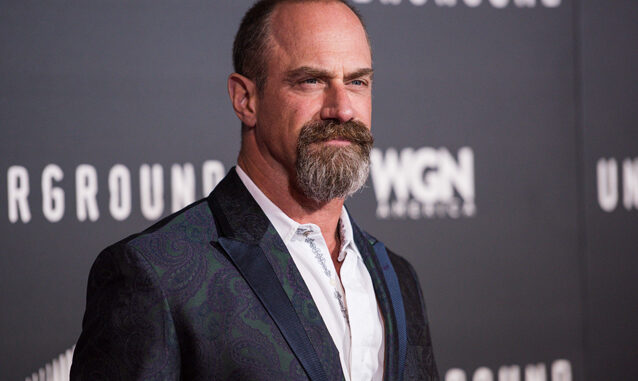
This scenario – Christopher Meloni allowing his daughter Sophia to throw a destructive rave in their luxury apartment – is a fascinating jumping-off point for exploring several themes: the complexities of parenting, the performance of coolness, the allure of destruction, and the privileges afforded to the wealthy. While purely hypothetical, it allows us to examine the underlying motivations and consequences such a situation might entail.
Firstly, the act speaks volumes about parenting. We often see parents striving to connect with their children, especially teenagers, a period marked by rebellion and a desire for autonomy. Perhaps Meloni, known for his own rebellious streak on screen, sees this as an opportunity to foster a closer bond with Sophia. He might be attempting to be the "cool dad," granting her freedom and trusting her judgment. The "demo party rave" could be interpreted as a symbolic gesture of letting go, of allowing Sophia to exert control over her environment, even if it means its temporary destruction. He might be hoping that by allowing this seemingly outlandish request, he's building trust and understanding, proving that he's not just a stern authority figure, but an ally. However, this approach carries inherent risks. Unfettered freedom can lead to chaos and unforeseen consequences, and the line between being supportive and enabling can become blurred.
Secondly, the act highlights the performance of coolness, especially within celebrity culture. For Meloni, allowing such a radical event could be seen as a way to maintain a certain image – a celebrity who's not afraid to push boundaries, who's "down" with the youth, and who understands the zeitgeist. It's a statement that he's not just a successful actor but also someone who's progressive and accepting. For Sophia, hosting such a party provides social capital. It establishes her as someone who's connected, edgy, and unafraid to challenge norms. The "demo party" becomes a curated performance, documented and shared, amplifying their perceived coolness within their respective social circles. This performance, however, can be shallow and unsustainable, prioritizing image over genuine connection and responsible behavior.
Thirdly, the allure of destruction is a potent force. There's a primal satisfaction in dismantling, in breaking things down. For Sophia, the "demo party" might represent a cathartic release of pent-up frustration, a way to reject the rigid structure and expectations associated with their privileged lifestyle. The temporary chaos could be seen as a liberating act, a fleeting moment of rebellion against the order and opulence that surrounds her. For Meloni, allowing the destruction might be a vicarious thrill, a safe way to experience a controlled form of anarchy. He might see it as a necessary outlet for Sophia, a way to explore her own agency without causing lasting harm. However, the act of destruction, even within a controlled environment, raises questions about the value we place on material possessions and the potential for destructive impulses to escalate.
Finally, and perhaps most significantly, the scenario underscores the privileges afforded to the wealthy. The ability to destroy a luxury apartment without significant repercussions speaks to a level of financial security that most people can only dream of. The cost of repairs is likely negligible in the grand scheme of their wealth, making the act of destruction a consequence-free expression of freedom. This stark contrast highlights the inequality that exists within society, where acts that might have devastating consequences for one family are merely a temporary inconvenience for another. The "demo party" becomes a symbol of unchecked privilege, a reminder of the vast chasm between the haves and have-nots.
In conclusion, while the scenario of Christopher Meloni allowing his daughter Sophia to throw a "demo party rave" is fictional, it provides a compelling lens through which to examine complex themes of parenting, performance, destruction, and privilege. It forces us to consider the motivations behind such an act, the potential consequences, and the underlying social dynamics that make it possible. Ultimately, it's a thought-provoking exploration of the choices we make, the image we project, and the impact our actions have on ourselves and the world around us.
